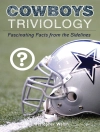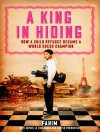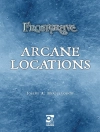Based on the premise that we have 21 days before we lose our modern conveniences, Surviving the Apocalypse in the Suburbs is packed with practical solutions for becoming more self-reliant and transitioning to a lower energy lifestyle. From shelter to livestock to transportation to tools, this is the ultimate guide to simplifying your lifestyle while reducing your dependence on oil.
İçerik tablosu
Preface
Day 1: Shelter
This chapter addresses why staying put is better than fleeing. It also addresses some important modifications to consider for making the suburban house more efficient in a low energy world.
Day 2: Water
This chapter explains some options for ensuring that one’s suburban home will be water secure.
Day 3: Fire
The essence of this chapter deals with the importance of fire, and how to harness it safely for heating and cooking.
Day 4: Cooking (fire pits, cob oven, solar oven, rocket stove)
This chapter looks at some different cooking options.
Day 5: Food – stocking up (what to buy for storage items)
This chapter discusses what to store and what not to store. The best (and really only) option for storage food is to have a winter’s worth of the kind of food one ordinarily eats and that is readily available where one lives. This chapter discusses the need to start transitioning to a local diet now, while there are still other food choices.
Day 6: Food – storage (root cellars, drying, canning, fermenting, freezing)
This chapter deals with ways to store that winter’s worth of food and covers the pros and cons of the different preservation options. There will also be some information about low energy storing options, like root cellars.
Day 7: Growing Food
This chapter discusses what to grow with an emphasis on growing perennials and small space gardening techniques. ere is also be a short tutorial on seed saving and a side bar on easy how-to seed sprouting.
Day 8: Livestock: chickens, rabbits, and ducks.
This chapter deals with raising animals in the suburbs, including housing and feeding. There is a lengthy discussion of my chicken coop design. The chapter also includes some discussion about how suburban livestock is valuable even for the non-meat eater.
Day 9: Laundry
This chapter deals with how to do laundry without a washer and a dryer. There is also a recipe for homemade laundry detergent.
Day 10: Lights
This chapter will addresses some of the alternative choices, including candles, kerosene lamps, easy to make olive oil lamps, solar lighting and techniques like mirrors for reflecting light.
Day 11: Electricity
This chapter deals with some options for reducing the amount of electricity we need so that we will be better able to generate enough for the few things for which there is no alternative. The chapter also includes some suggestions for DIY electrical generation systems.
Day 12: Waste disposal
This chapter deals with ways to reduce the amount of garbage going out by reducing the amount of waste coming in with a strong emphasis on the three R’s: Reduce, Reuse, Recycle.
This chapter discusses sanitary waste disposal with some advice on what we can do with our poop once the toilets can no longer be flushed.
Day 13: Healthcare
There are several recommended books, a list of recommended herbs for a homecare medicine cabinet, some recommendations for basic medical supplies (survival supplies).
There is also an easy baking soda and salt based toothpaste recipe.
Day 14: Cleanliness
There is information about basic soap making and a recipe for homemade deodorant. The point of this chapter is that there are some things that just make us feel more human, and being clean is one of them. In a lower energy future, we don’t have to give that up.
Day 15: Tools
This chapter deals with tools to buy, tools to share, and tools to discard.
Day 16: Building a library
There was a time in our history when books were cherished and only the very rich had more than a Bible. Just about anything we might want to know can be found in books, and with all of the lost knowledge, books will be the way we learn how to do things in a lower energy future – things our parents or grandparents took for granted, but that we are just learning. This chapter stresses the importance of building a library now and some places that books can be gotten for free or for very cheap.
Day 17: Entertainment
Even in a lower energy society where more things will be done manually, in a twenty-four hour day, there will still be plenty of time to fill. In fact, the average peasant farmer in Medieval England worked an average of nineteen hours per week (more in the summer, less in the winter). This chapter addresses the need for play, and provides some advice about the kinds of items one might want to have on hand to keep minds occupied when there is no television.
Day 18: Schooling
With less of everything to support our massive school buildings and their unsustainable infrastructure, schooling will become more localized. Homeschooling and/or small, community-based schools (picture the one-room school buildings) will become more the norm. This chapter talks about different schooling options and provides general information about homeschooling laws. There is also some information about the differences between a homeschooling co-op and a charter school, and talks about ways of setting up both.
Day 19: Networking
This chapter is really about building community and relationships. Without the help of our neighbors, no one will survive a lower energy future. Humans are pack animals, and we need to support of others to survive and thrive. This chapter will discuss ways to build community.
Day 20: Security
In every true-life collapse scenario in the past three decades (Russia, Argentina, Cuba), violence has been a significant issue, and even those of us who do not believe that brandishing a gun is the best way to protect ourselves, protection will be necessary for ourselves, our families, our neighbors and our communities. This chapter discusses some techniques we will need to use to keep ourselves safe.
Day 21: Transportation
This chapter discusses ways of getting from here to there in a world with fewer cars. Bicycles will be discussed, but also some non-traditional ways of moving goods.
Afterword: Includes a section on suburban jobs of the future.
Yazar hakkında
Wendy Brown is a suburban homesteader growing roots (both literally and figuratively) in Southern Maine. Until 2005 her family was living the American Dream, complete with credit card debt, car payments and two mortgages. Concerns about the environment, Peak Oil, and the economy combined with a growing desire to live a more self-sufficient life caused her and her family to reevaluate their lives. The result has been a transition from a completely dependent, consumerist lifestyle to one of living debt-free in a comfortable, more energy efficient home in a desirable location with a bountiful garden.












